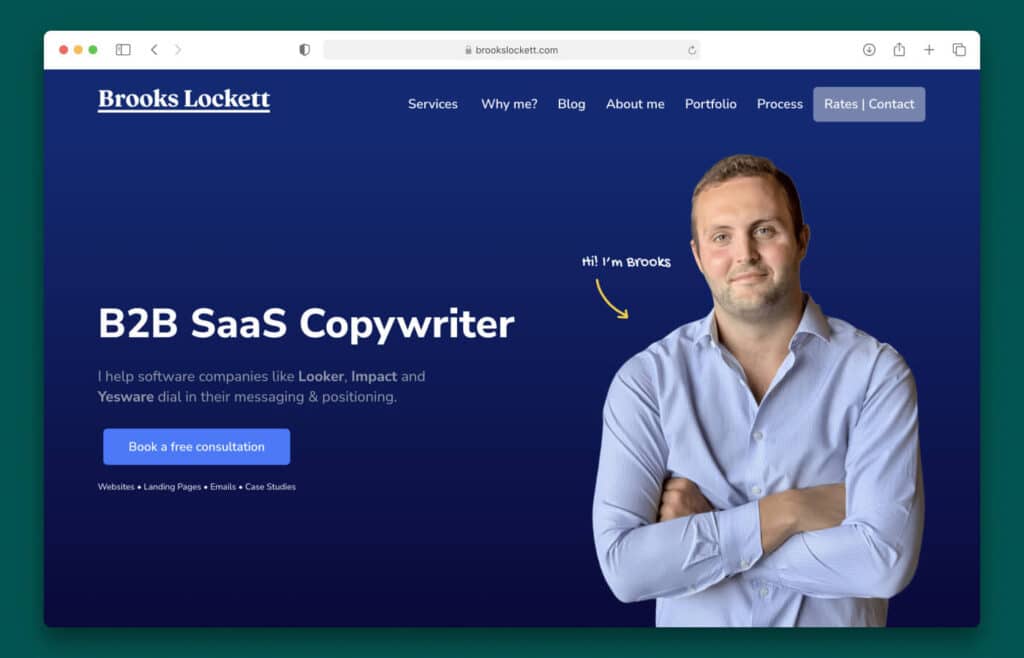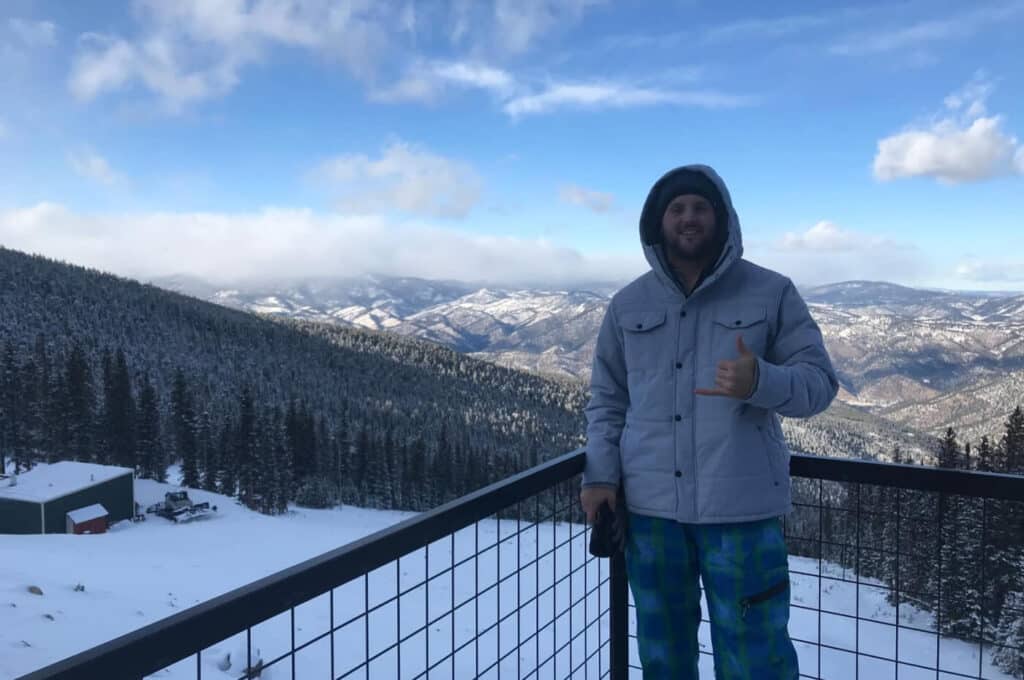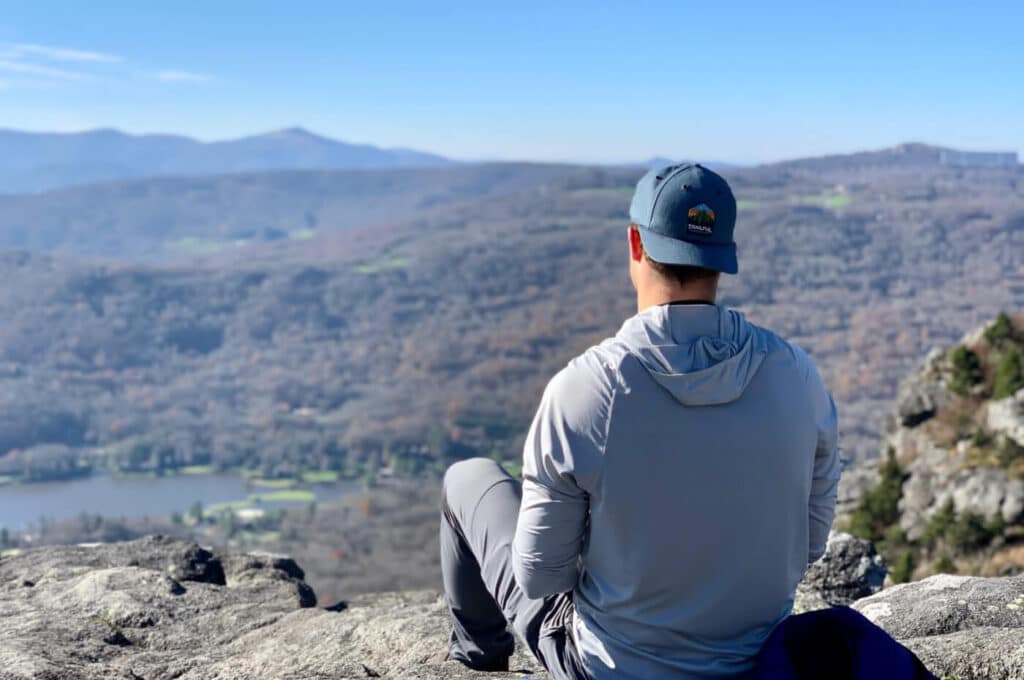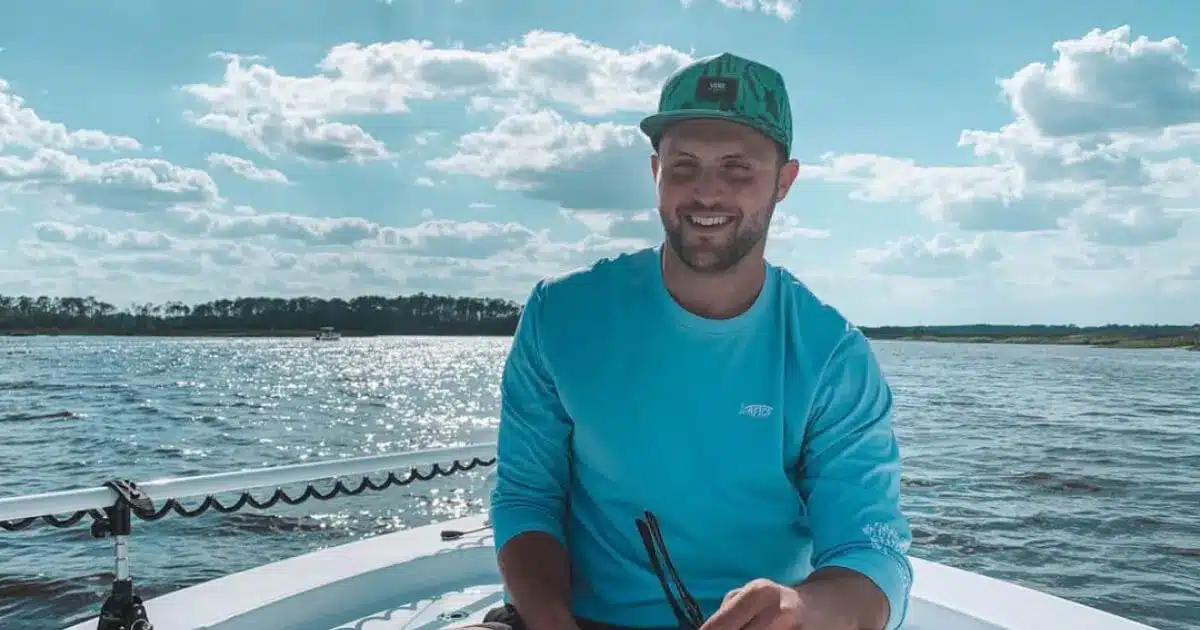Brooks Lockett is a freelance copywriter specializing in the B2B SaaS niche.
Based in Charlotte, North Carolina, USA, he’s written sales copy for dozens of tech companies — from small 2-person startups to market leaders like Google Cloud.
Brooks advises his clients on how to stand out through clear messaging and crisp positioning, then writes the copy to execute. As a specialized B2B SaaS copywriter, he understands the nuances of his industry in ways generalists simply can’t.
How Did You Become a Writer?
When I got started, the internet was already flooded with thousands and thousands of people calling themselves copywriters. And the principle I understood from the very beginning was that I needed to have an answer to “Why choose me specifically?”
And it needed to be extremely obvious. Otherwise, I’d just be lumped in with the masses.
I already had an English degree plus writing experience, so my general skill competency was there. But the real meat of what makes my writing valuable is the fact that I’m all in on one thing. I work exclusively with B2B SaaS companies and have been for years.
I ask every client why they chose me and the answer is always the same:
You were the only one who really knew the B2B SaaS industry, understood what we’re looking for, and had the proof to back it up.
The key term here is “positioning.”
And I position myself as a specialist in a sea of generalists. Positioning is the reason I close great clients. Positioning is the reason my copy performs consistently. Positioning is the reason I have the freedom I have.
Even if I’m not on my A-game, I’m still going to beat the generalist writer who lacks the years of experience I have in B2B SaaS. The wind is always blowing at my back, and it’s an unfair advantage.
How Did You Get Your First Writing Job?
I got my first freelance copywriting client from LinkedIn. A founder at a 2-person B2B SaaS startup liked my post and sent me an inquiry about writing him a new website. I accepted the project and ended up building a relationship that’s lasted years now.
From there, I landed more clients through LinkedIn and started getting referrals. Fast forward a few years later and I have a waitlist of clients and an online presence I’m slowly growing.
I don’t want to sound preachy or anything, but this is important for those reading.
From the beginning, I was calling myself a “B2B SaaS Copywriter,” and led with my unique differentiator of being “the specialized copywriter.” That stood out to my ideal clients and continues to stand out today.
What Skills Do You Need to Be a Good Writer?
A small caveat: I can only speak for business-focused writers looking to have success online.

Brooks Lockett helps software companies like Looker, Impact, and Yesware with their messaging and positioning.
With that in mind, here’s my advice: Anyone can write. Few can write well. Even fewer can stand out and be memorable.
To be memorable, you need to be crystal clear on what makes you fundamentally different from all the others who look just like you. This could be a niche, a certain experience you have, a magnetic personality, certain values you hold, original ideas, etc.
Once you have that dialed in, then you execute well and build a moat around yourself. Think Kanye West (personality), think Patagonia (values on climate change), think Apple Computers (for cool people like writers and artists and designers), think James Patterson (thriller novels).
What’s the one thing that comes to mind when people hear your name? Nail that and you’ll stand out among the tens of thousands of talented writers out there. Even if you’re not the best writer.
What Influences Your Writing the Most?
First, I tend to read a lot. Non-fiction, fiction, industry publications. I like to think of writing as connecting dots others have created rather than creating the dots themselves. And the good news is there are endless dots out there to connect.

Brooks Lockett. Photo supplied by the writer.
Second, I travel a lot and take mental notes of interesting experiences I have. These don’t have to be anything insane. But when you start to look at ordinary situations as stories for your readers, you’ll see that everything is a story.
For example, “I was swimming in the ocean and saw a sea turtle swimming in the shallows away from the reef” → an email to my list about how sea turtles understand how to choose a niche rather than compete with all the big fish out on the reef.
When I’m writing, it feels more like “documenting” rather than “creating.”
What Tools and Software Do You Use for Work?
For writing I use Brain.fm, Google Docs & Hemingway Editor.
For the design, I use Canva & Slidebean.
For project management, I use Asana, Google Workspace, CloudApp, Zoom, Otter.ai, Funnelytics, Slack, and Calendly.
For freelancing and business, I use FreshBooks, Stripe, LinkedIn, Webflow & ConvertKit.
What Are Your Writing Habits?
I write in 30-minute sessions using Brain.fm. When those 30 minutes are up, I get up and take a break.
I do my best work early in the morning (before 9 am). My phone is off and in a different room when I’m writing.
I write daily (minus weekends). I take my time and don’t try to rush.
The key to writing for me is to read a lot. You’re simply connecting dots in your unique way and style. So I read a ton, jot down lots of ideas in my “idea jar” and use them as fodder in my writing.
I never run out of ideas, and when I get stuck, I just go consult my idea jar. But honestly, being so niche and specialized and laser-focused on one industry, I never run out of things to write about. It comes naturally.
What’s the Best Investment You Made in Your Career?
I know people always talk about reading lots of books. But I think what pays off better is to find the best books and re-read them again and again.
For example, I re-read Obviously Awesome by April Dunford and Breakthrough Advertising by Eugene Schwartz once every couple of months. They’re always in my backpack when I’m traveling.
My goal is to tattoo the information on the sides of my brain. Doing this adds much more depth to your knowledge. It shows in your work how well you understand the concepts you’re constantly re-reading and memorizing.
That, plus showing up every day and working hard. I know that’s a super un-sexy answer and doesn’t fit the “zero to six-figures in 30 days” narrative every new writer seems to expect now. But consistency will build a beautiful writing career that lasts.

“Be consistent, show up every day and create your version of the “good life,” says Brooks Lockett. Photo supplied by the writer.
I’m fully invested in developing my craft for a lifetime. It’s a never-ending pursuit. The only goal I set for myself is to be in business for a long time. It takes the pressure off, guides my decisions, and makes everything more fun!
What Are the Most Influential Books in Your Life?
I have two books for business and one book for personal life.
For business, Obviously Awesome and Breakthrough Advertising.
Obviously Awesome by April Dunford
No business or marketing book will give you as much insight as this one. Longtime tech startup consultant April Dunford shows us a 10-step process for how to make the value of a product or service super obvious.
I’ve recommended this book to all my clients and have it mostly memorized. Copywriting isn’t about convincing anyone. It’s about letting people convince themselves.
Breakthrough Advertising by Eugene Schwartz
In my opinion, this book provides the best copywriting education. It was written back in 1966 and goes in-depth into all the timeless principles that make copy sell. I study this book constantly.
For personal life, The Power of Habit.
The Power of Habit by Charles Duhigg
When you realize most of our behavior is automatic (done without thinking about it), it opens up a whole new way of seeing human beings. Duhigg delivers story after story, and study after study on how this drives so much of what we do. Fascinating stuff.
What Are Your Favorite Writing Quotes?
When I write an advertisement, I don’t want you to tell me that you find it ‘creative.’ I want you to find it so interesting that you buy the product.
This covers the fundamental definition of copywriting… that it’s salesmanship in print. Not creative for creativity’s sake. It exists to get sales. When you realize that every word on a page should sell (and the ones that don’t sell should be cut) you start getting better at writing copy.
Copy is not written. Copy is assembled.
Another great point from one of the all-time greats. Great copy comes from research, analysis & strategy. Not dreaming up words in a room. It’s 90% research and 10% writing. You only start writing once you have too much to say. This also makes it so you never get “stuck.”
“Good advertising is written from one person to another. When it is aimed at millions it rarely moves anyone.” – Fairfax M. Cone
Such a foundational lesson, yet practiced by so few. Most writers are going to write to everyone. Vanilla. Everything to everybody. And it’s the ones who know their one reader who succeed in the long run. It’s also such a timeless principle of persuasion: The Rule of One. One reader, one writer, one big idea.
If Someone Wants to Be Where You Are Now, How Can They Get There?
If I had to distill my advice down to 5 concrete steps, I’d say:
- Figure out what makes your writing uniquely valuable
- Figure out the type of person who cares the most about that unique value
- Focus your writing on serving them and only them
- Rinse and repeat for years
- Watch how far you’ve come
Other than that, I’d say smell the flowers often, read/study your craft every day, save your money, and don’t get distracted by all the shiny things out there promising you the “good life” if you take that course or buy that training.
Be consistent, show up every day and create your version of the “good life.”
